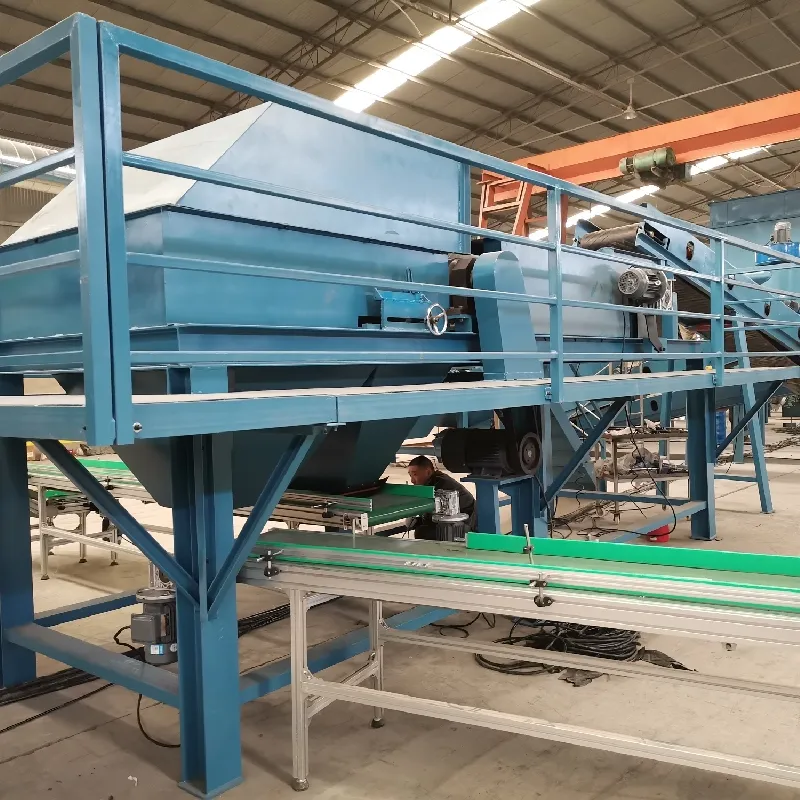

டிசம்பர் . 12, 2024 11:56 Back to list
The Importance of Hammers in Crushers A Comprehensive Overview
In the world of heavy machinery and construction, crushers play a vital role in transforming large materials into smaller, manageable pieces. These machines are essential in various industries, including mining, construction, and recycling. One of the critical components of a crusher is the hammer, which significantly influences the machine's efficiency and effectiveness. This article delves into the importance of hammers in crushers, their design, types, and maintenance, highlighting why selecting the right hammer is crucial for optimal performance.
Hammers in crushers are primarily responsible for breaking down large rocks, concrete, and other materials into finer particles. The force exerted by the hammers, combined with their design, determines the ability of the crusher to handle different materials and achieve the desired size reduction. A well-designed hammer can lead to improved performance, reduced mechanical wear, and lower operational costs.
There are various types of hammers used in crushers, each designed for specific applications and material types. The most common hammer types include
The Importance of Hammers in Crushers A Comprehensive Overview
2. Manganese Hammers Manganese hammers are famous for their excellent toughness and shock resistance. They are often used in primary and secondary crushing applications, particularly for less abrasive materials. Their ability to withstand heavy impacts makes them suitable for various crushing tasks.

3. Alloy Hammers These hammers, made from a combination of metals, offer a balance of toughness and wear resistance. They are versatile and can be used in various applications, making them a popular choice in the industry.
Selecting the right hammer for a specific application involves understanding the material being processed and the desired output. Factors such as hardness, abrasiveness, and size of the input material must be considered. Additionally, the operating conditions, including the speed and load of the crusher, can influence the hammer choice.
Maintenance is key to ensuring the longevity and performance of crusher hammers. Regular inspections can help identify signs of wear and tear, enabling timely replacements and minimizing downtime. Proper lubrication and adherence to operating guidelines further enhance the hammer's lifespan. It's also essential to maintain the overall condition of the crusher to prevent excessive strain on the hammers.
Investing in high-quality hammers and maintaining them effectively can significantly impact the overall efficiency of a crushing operation. High-performance hammers can lead to quicker material processing, reduced energy consumption, and ultimately, lower operational costs. When selecting hammers, it is advisable to consult with manufacturers or suppliers who can provide insights based on specific needs and applications.
In conclusion, hammers are a fundamental component of crushers, playing a crucial role in transforming raw materials into usable forms. Understanding the different types of hammers, their applications, and maintenance requirements can help operators maximize their equipment's performance. As industries continue to evolve, the focus on efficiency and cost-effectiveness will make the selection and maintenance of the right hammer more important than ever. By prioritizing these aspects, businesses can enhance productivity, reduce costs, and achieve greater success in their operations.
Latest news
Troubleshooting Common Eddy Separator Problems
NewsJul.04,2025
The Role of Metal Recycling Plants in Circular Economy
NewsJul.04,2025
The Impact of Recycling Line Pickers on Waste Management Costs
NewsJul.04,2025
Safety Features Every Metal Shredder Should Have
NewsJul.04,2025
How Industrial Shredders Improve Waste Management Systems
NewsJul.04,2025
How Cable Granulators Contribute to Sustainable Recycling
NewsJul.04,2025